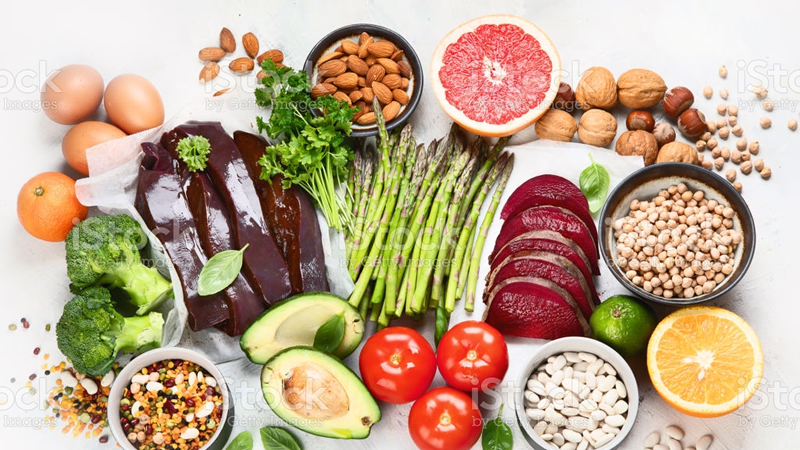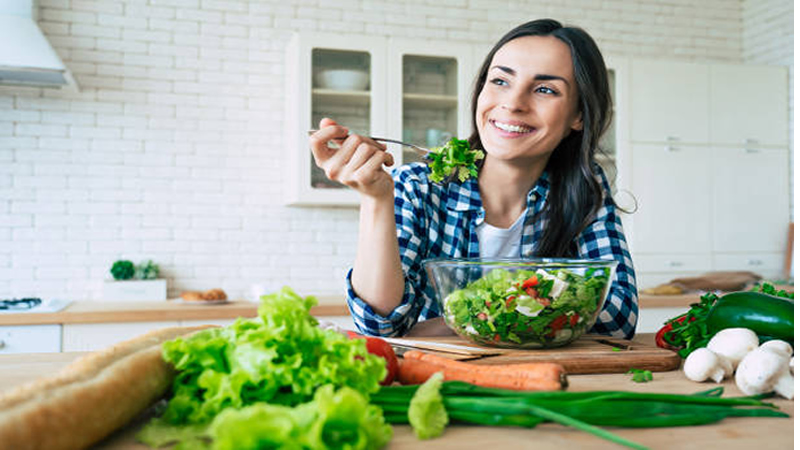Women are the pillars of the family. They always balance the demands of family, work, and society. They also have social pressure to eat in a certain way. But, maintaining a healthy diet can be difficult for women.
Choosing healthy foods and drinks is the cornerstone of health. It boosts not only your energy but also keeps you healthy during various stages of life.
As women, we are often prone to neglecting our health and dietary requirements. It can be because of our busy schedule or used to prioritizing our family’s health before our own. This can also be one of the reasons that you are trying to stick to your diet plan so strict that it leaves you short on nutrients and low on energy.
The food choices you make every day may affect your health eventually in life. Choosing healthy food can prevent or manage various health problems that affect women. Also, it is important to note that women have different daily nutritional requirements than men.
Why women’s nutritional needs are higher than men?
As children, dietary requirements are the same in both genders. But as females reach puberty, the nutritional needs increase because of physical and hormonal changes.
Hormonal changes such as menstruation, pregnancy, and menopause can cause changes in the female body where a healthy diet plays an important role. While women need fewer calories than men, they require a higher amount of vitamins and minerals. So, here are a few healthy eating tips for women –
1: Iron-rich foods
The amount of blood present in your body depends on iron levels. Iron helps to form haemoglobin that carries oxygen in your blood. Iron is essential for everyone, but the amount needed is different for women in every phase of life.

Because of loss of blood during menstruation, pregnancy, and delivery; women require the double amount of blood as men. Low levels of iron may cause iron-deficiency anaemia. Here are a few tips to get enough iron from your diet-
- Consume vitamin C-rich foods such as green leafy vegetables, citrus fruits such as lemon.
- Eat lean red meat.
- Eat seafood and poultry food.
- Avoid coffee, tea, or milk during meals.
- The daily requirement of iron–18 mg/day for an adult woman and 27 mg/day if pregnant.
2: Folate or vitamin B9 during reproductive age
Folate or vitamin B9 is essential during childbearing age. It decreases the risk of birth defects when taken before conception and during the first few weeks of pregnancy.

Folate can also reduce the risk of getting certain types of cancer and helps to produce estrogen after menopause. Foods to get folate or vitamin B9 –
- Legumes–lentils, peas
- Dark green leafy vegetables–spinach, kale
- Citrus fruits–oranges, grapefruits
- Nuts and seeds–walnut, almonds, flax seeds
- Fortified grains
- Avoid alcohol, nicotine.
- The daily requirement of folate–400 mcg/day
3: Calcium for strong bones
For healthy bones and teeth, we need to eat calcium-rich foods every day. Calcium also helps to regulate the heart’s normal rhythm and normal functioning of the nervous system. If you don’t get enough calcium, your bone will weaken, and this may lead to osteoporosis. Osteoporosis condition is more common in women than in men. Also, calcium deficiency can lead to irritability, weakness, fragile bones, etc. Some tips for more calcium consumption-
- Include more dairy products in your diet–milk, yoghurt, cheese.
- Consume a lot of green leafy vegetables.
- Eat nuts and seeds–almonds, sesame seeds.
- Eat more seafood–fish, oysters.
- Try to replace some meat items with tofu or tempeh.
- Reduce the intake of caffeine, alcohol
- The daily requirement of calcium–1000–1200 mg/day
4: Vitamin D and magnesium-rich foods
For healthy absorption of calcium, you need to take vitamin D and magnesium along with calcium. Without magnesium and vitamin D, the body is unable to metabolise and use calcium. Here are some sources of vitamin D and magnesium –
- Vitamin D–you can get the required amount of vitamin D from direct sunlight and foods such as fish, cod, milk, yoghurt, and fortified foods.
- The daily requirement of vitamin D–600 IU/day
- Magnesium–eat green leafy vegetables, broccoli, summer squash, and a variety of seeds.
- The daily requirement of magnesium–320-400 mg/day
- The dietary requirement is different in every step for women. There are some phases of life where they need to prioritize healthy diet –
1: Daily, healthy eating tips for menstruating women –
- Eat foods rich in iron and zinc–leafy vegetables, eggs, meat, nuts, and seeds
- Increase your calcium intake–dairy products, milk, yoghurt
- Take vitamin supplements if needed
- Add omega-3 fatty acids in your diet such as fish, cod to relieve menstrual cramps
- Cut down the excess intake of salt to avoid bloating
- Avoid fats, bakery products, and sugar
- Cut out alcohol and caffeine
2: Healthy eating for pregnant and breastfeeding women
During pregnancy and breastfeeding, a woman needs 300 extra calories than normal women. Because of the increased requirement, you need to focus more on a healthy diet.
- Eat all kinds of nutritional foods–rich in iron, calcium, vitamins, minerals, etc.
- Consume a lot of omega-3 fatty acids–fish
- Eat high-quality proteins–from fish, poultry foods
- Avoid alcohol consumption
- Cut down caffeine and nicotine
- Eat smaller and frequent meals
3: Diet tips to ease the menopausal symptoms
- Boost calcium intake
- Eat more fats–such as omega-3 and omega-6 essential fatty acids. They help to balance hormones and reduce hot flushes.
- Eat flax seeds–Flax seeds contain lignans that help to balance hormones and treat hot flushes.
- Consume more soy–they are useful in managing menopausal symptoms. You can try soy nuts, soy milk, and tofu.
- It is important to understand that women’s nutrition requirement differs from that of men. Include food items in your diet that not only boost your energy levels but also keeps you healthy to perform better at each stage of your life.



